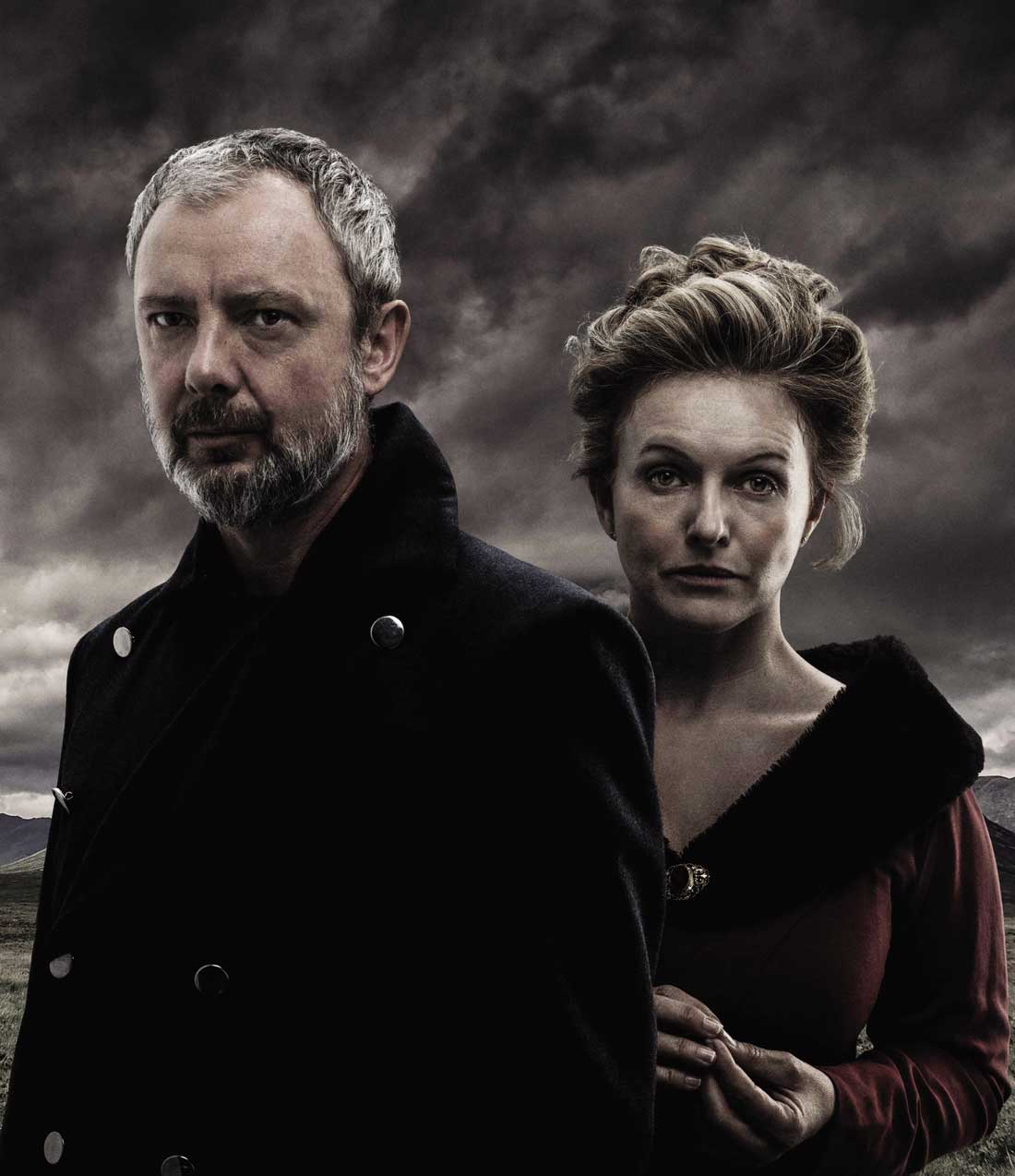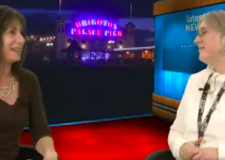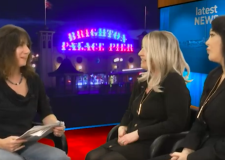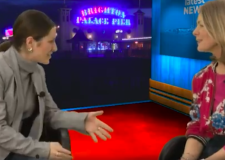MACBETH at Chichester Festival Theatre

John Simm and Dervla Kirwan star in the new production of Shakespeare’s dark Scottish play at Chichester Festival Theatre
Chichester Festival Theatre’s new production of Shakespeare’s famous tragedy Macbeth, starring John Simm and Dervla Kirwan as the corrupted couple whose ambition brings tyranny and chaos in its wake, will mark a homecoming for its director, Paul Miller.
‘I was born in Chichester and my family goes back several generations on the south coast,’ he recalls. ‘I saw a lot of the summer programmes in the late 70s through to the mid 80s, so it was my theatrical upbringing’.
Now Artistic Director of the prestigious Orange Tree Theatre in Richmond, Paul has directed John Simm in several new plays (one of which brought John an Olivier Award nomination), and in a successful production of Hamlet at Sheffield Crucible. ‘Practically as the lights came down on the last performance, he turned to me and said ‘I want to do Macbeth next’.
The star of such hit TV series as Strangers, Collateral, Dr Who and Life on Mars, Paul points out that John is ‘a remarkable stage actor; if you’ve never seen him on stage you have to take this chance, because he’s got a real stage presence and voice and intelligence. That quality of nervous, flickering thoughtfulness that he brings is perfect for this part.’
With its supernatural elements of witches and apparitions, combined with violent action, poetry and edge-of-the-seat storytelling, Macbeth is a potent brew. How will Paul be approaching the production?
‘We’re trying to conjure a world that feels recognisable but a little remote, like some frozen part of Northern Europe, maybe 100 years ago, but where a physical brutality is still very much part of life.
With its supernatural elements of witches and apparitions, combined with violent action, poetry and edge-of-the-seat story telling, Macbeth is a potent brew
‘Macbeth starts on a journey into his own mind. He’s both delusional but also very self-aware and fascinated by the inner contours of his own mind and his soul. One of the reasons I didn’t want to put it in a modern political setting is precisely because it might reduce it. It’s most potent when it exists as a metaphor. But I think it’s very easy to see all sorts of contemporary parallels: people make one terrible decision and that leads inexorably to another bad decision, and they get more and more boxed into their own position.
‘I also think it paints a very brilliant, vivid picture of the isolation that comes with power. The more power is exercised arbitrarily, or irrationally, the more fundamentally isolated the person becomes.’
Finally, Paul adds, ‘Macbeth is a very famous play and in theatre circles there’s a tendency for people to ask a director: ‘What are you going to do with it?’. I always think it’s terribly important to remember that on any given performance, for a sizable number of people this will be a story which they’ve never seen before. So I look forward, hopefully, to telling the story freshly, for them.’
Macbeth runs at Chichester Festival Theatre 21 September – 26 October: www.cft.org.uk





















